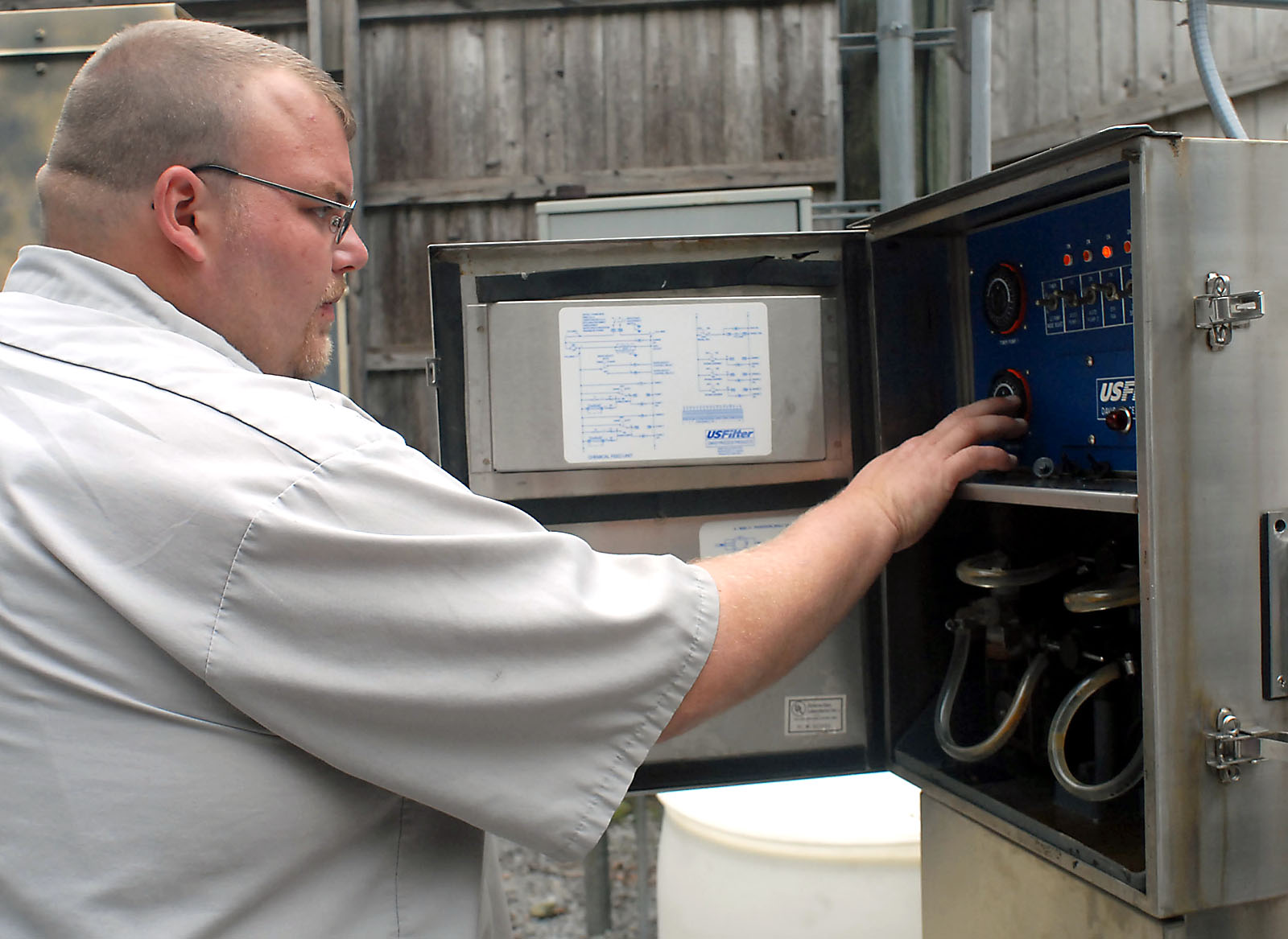BY THE NUMBERS
$488: Current average annual sewer bill$230: Proposed annual service feeSource: Lookout Mountain, Ga., City Council
Lookout Mountain, Ga., residents may see their sewer bills soar by 47 percent.
The City Council is eyeing a service fee of $19 per month, or $230 per year, for each of the sewer system's 632 customers. That would generate close to $150,000 a year for the city.
"That's what we're proposing," Councilman Jim Sabourin said at the council meeting Monday night.
The average household on Lookout Mountain now pays about $488 per year for sewer service, Sabourin said.
The purpose for the increase is twofold.
For one, the city expects the cost of having its sewage treated at the Moccasin Bend Wastewater Treatment Plant in Chattanooga to rise to help cover the cost of some $250 million worth of federally-mandated sewer system fines and fixes.
Lookout Mountain also needs to fund its own sewer system repairs.
Sewer systems in Chattanooga and Lookout Mountain, Tenn., suffer from aging, cracked pipes that cause such problems as stormwater infiltration, an overwhelming surge of sewage and stormwater during heavy rains.
By contrast, the Georgia town's sewer system mainly uses plastic piping. The sewer setup went into operation in 1999, after the city built it from scratch to replace widespread failing septic systems.
Still, officials anticipate higher operating costs and say maintenance and upgrades are needed.
Neutralizing odor expensive
Each home on the system has an underground sewage storage tank the size of a 55-gallon drum. When the tank fills to a certain level, a combination grinder and pump inside sends the sewage into lines under the street leading to the city's pump station at Chickamauga and Woodnymph trails. There, it's forced through an 8-inch iron sewer main to join sewage from the Tennessee side of the mountain destined for Moccasin Bend.
One drawback of the low-pressure sewer system, which City Manager Brad Haven says was the largest of its kind in the United States when it was built, is a buildup of hydrogen sulfide that smells like rotten eggs
To neutralize odor and corrosion, the city adds some 2,500 gallons per month of Bioxide, calcium nitrate solution made by the German multinational company Siemens.
Other companies make the chemical, but at $2.50 per gallon, Bioxide has been the city's least expensive choice, Haven said. He's been told the product's price will increase by 40 percent to 50 percent.
Repairs needed
Along with the higher cost of Bioxide, Haven has an extensive list of expensive sewage system improvements:
• Replacement of some 55 corroded cast-iron air release valves with new, plastic and stainless steel valves that cost about $700 each. The cast-iron valves on Woodnymph Trail are so corroded, Haven said, that city employees sometimes need to release the pressure by hand in order for sewage to flow there.
• Replacement of a 300-foot section of the 8-inch-diameter iron sewer main where it has developed a "belly" that acts as an air trap, slowing sewage flow.
• Repair of pipes contained inside the main pump station. The facility needs $50,000 to $60,000 in work, Haven said.
Sewer system parts are getting expensive, Haven said. For example, the 120-pound grinder pump at each resident's home costs $2,000 new. A pump can be rebuilt for $700 -- but doing so takes an entire day's work.
The city's sewer department has only two employees: Haven and Jason Derryberry. They're on call 24 hours a day and stay up all night to tend the sewer systems when bad storms strike the mountain.
"Brad Haven, if he didn't double as the sewer manager, we couldn't do it," Mayor Bill Glascock said at Monday's meeting.
The mayor said the city has a "bare-bones" budget and can't afford the additional sewage expenses without passing them on to customers.
"We have looked at every possible way to trim our expenses," Glascock said. "What we're doing is we're being realistic about what we're faced with."
City Council is expected to hold two more meetings before the end of the year to consider passing the sewer service fee.
The council also may create a special authority to oversee the city's sewer system.

